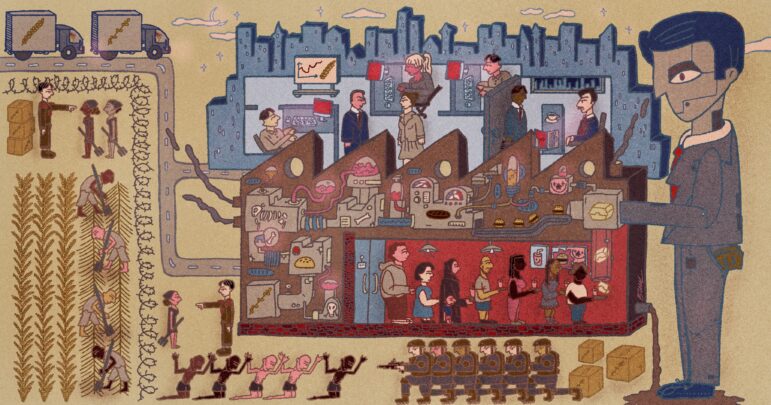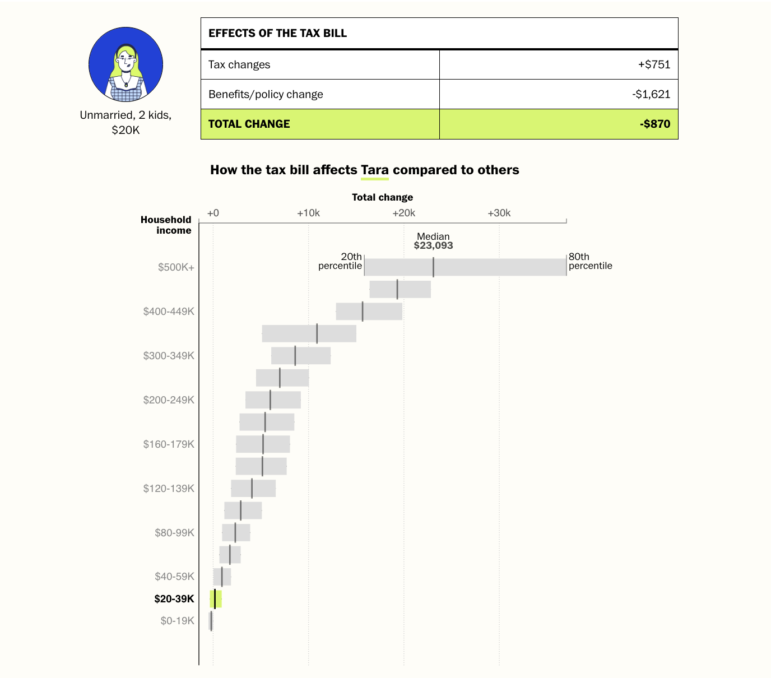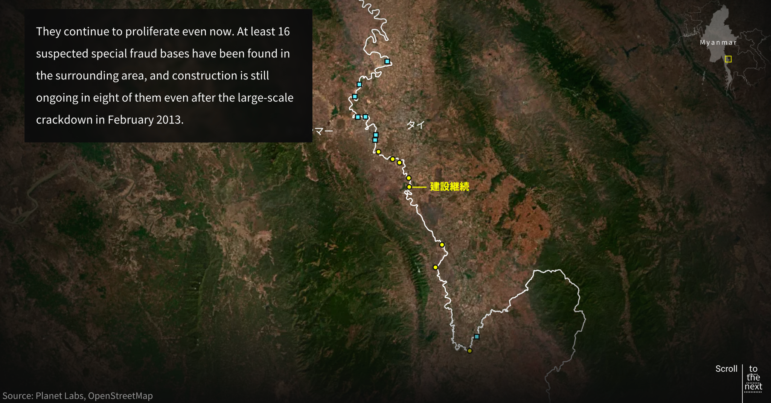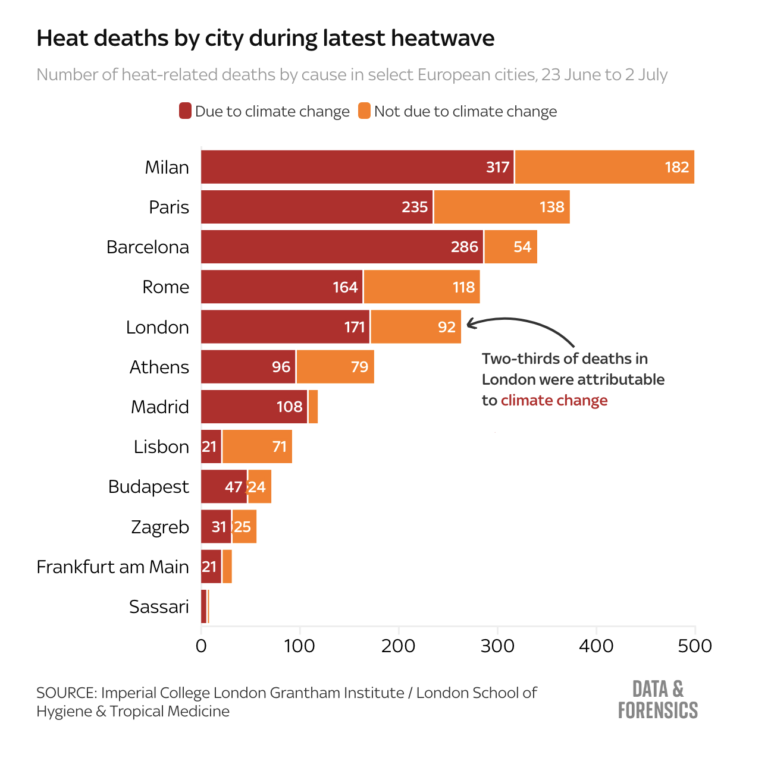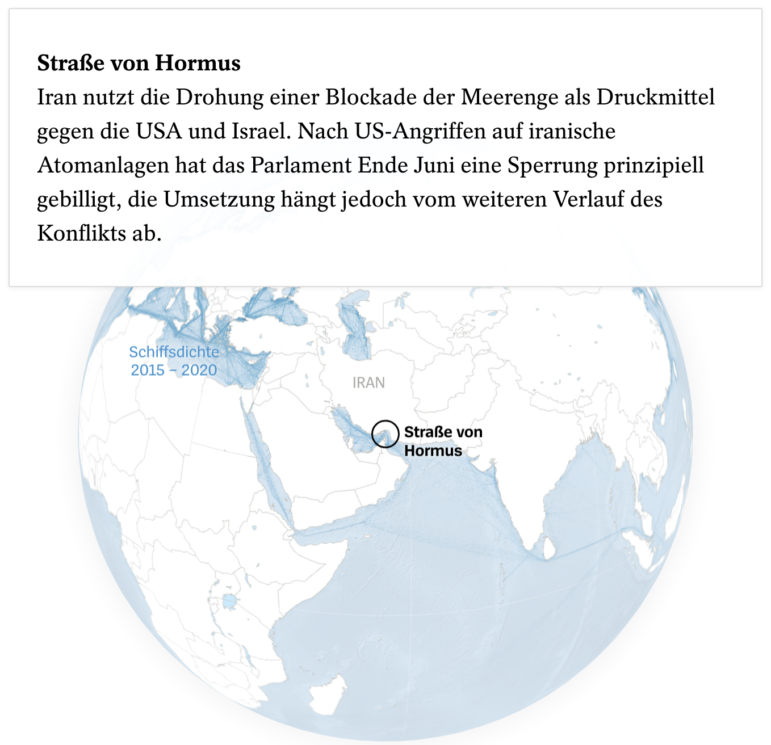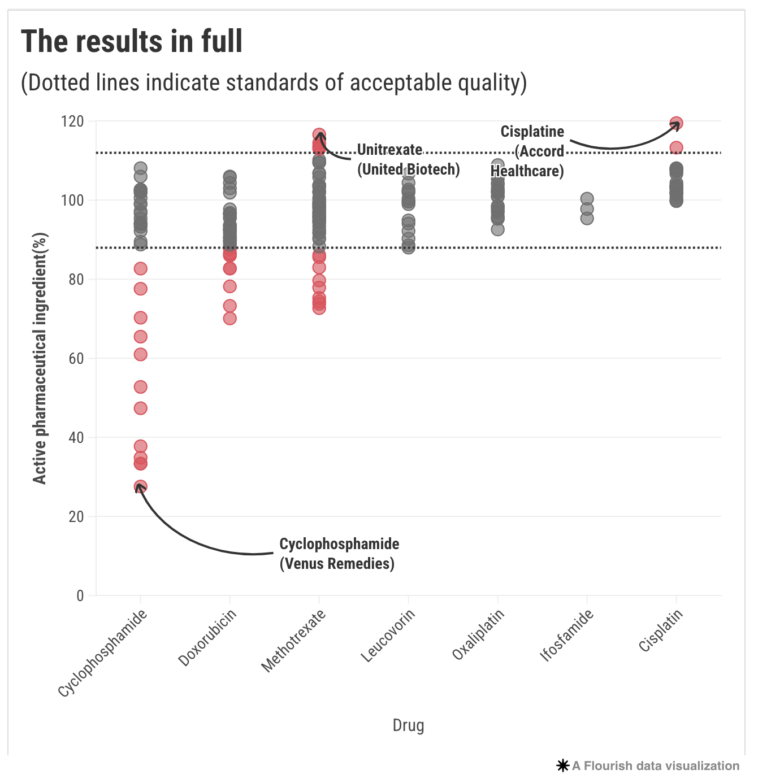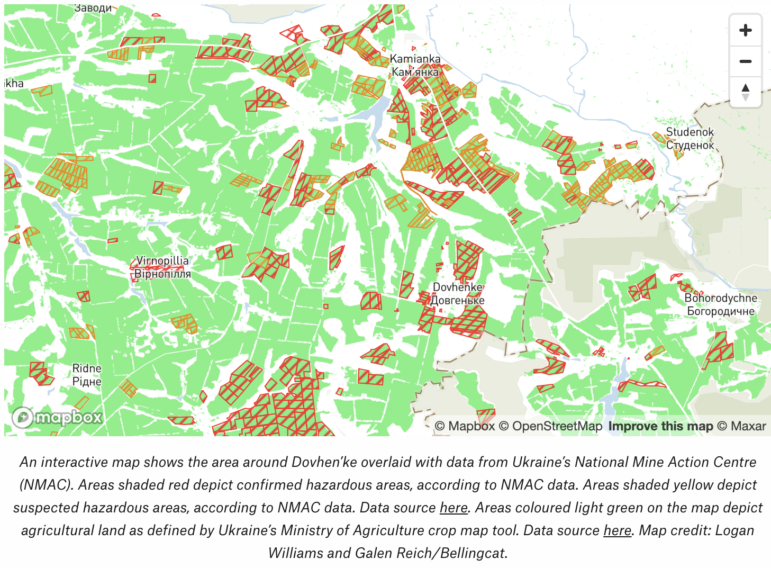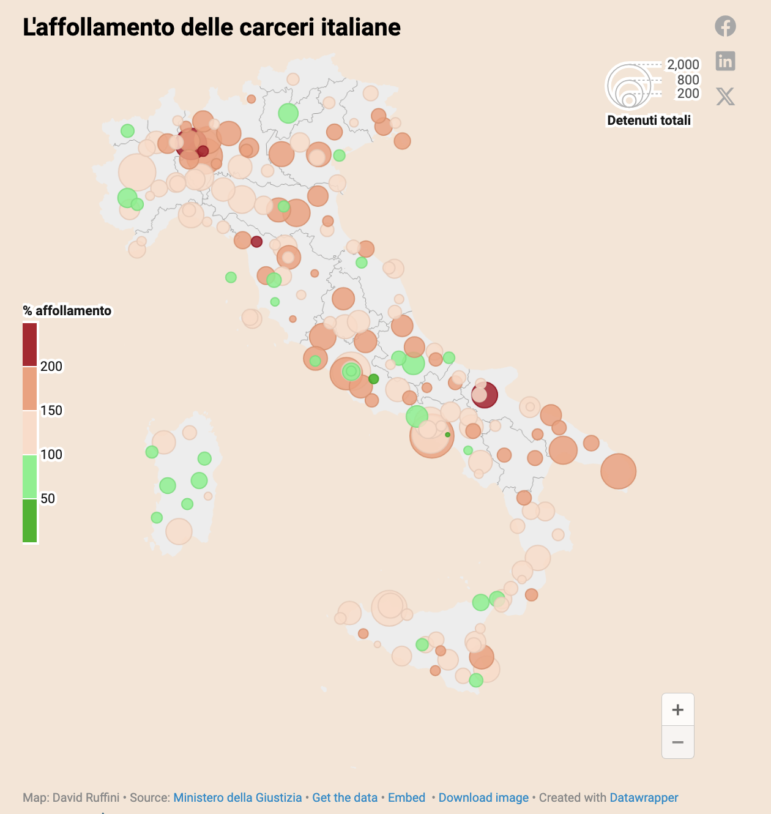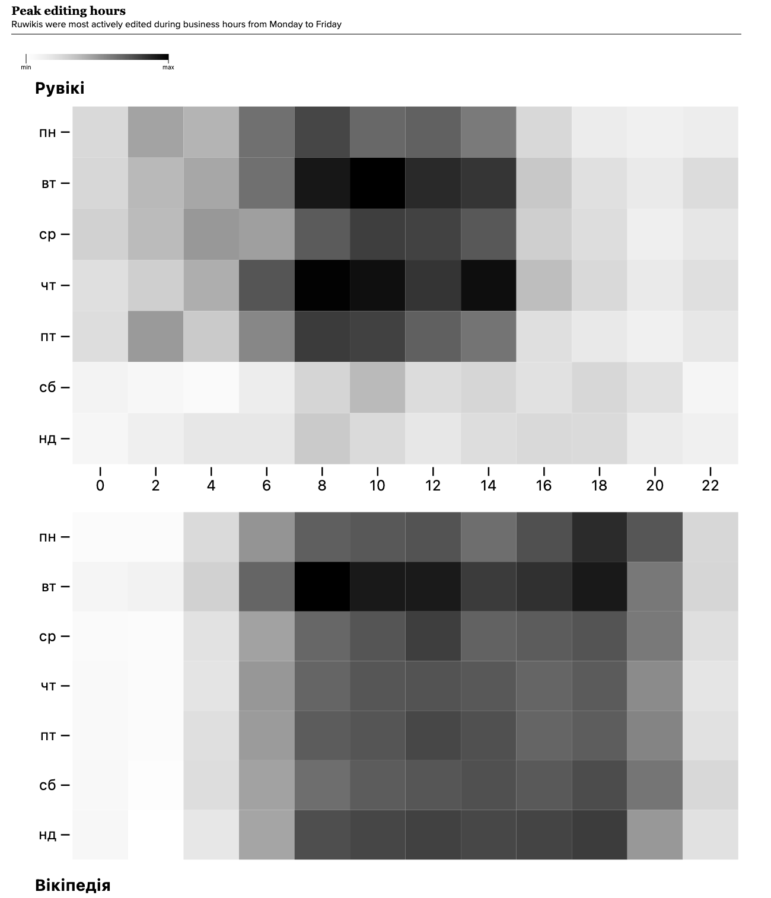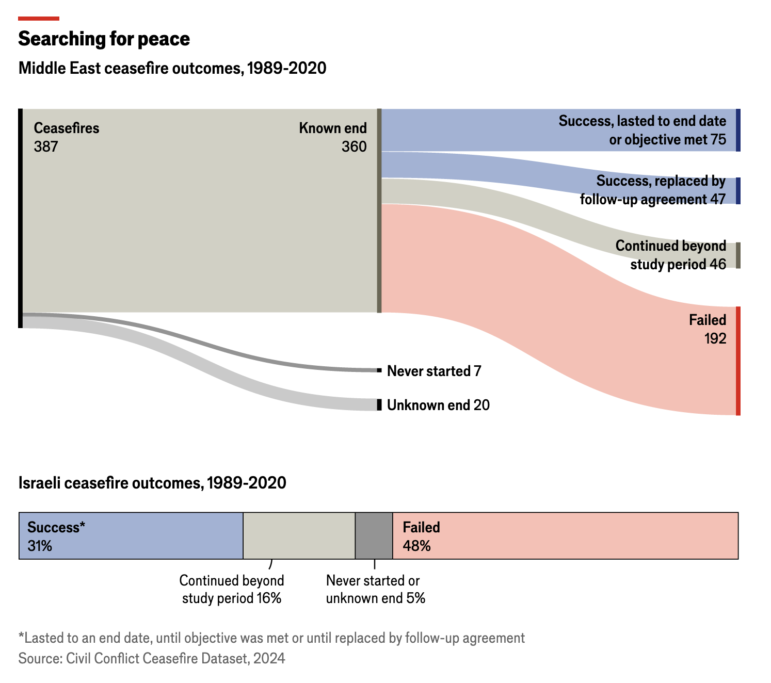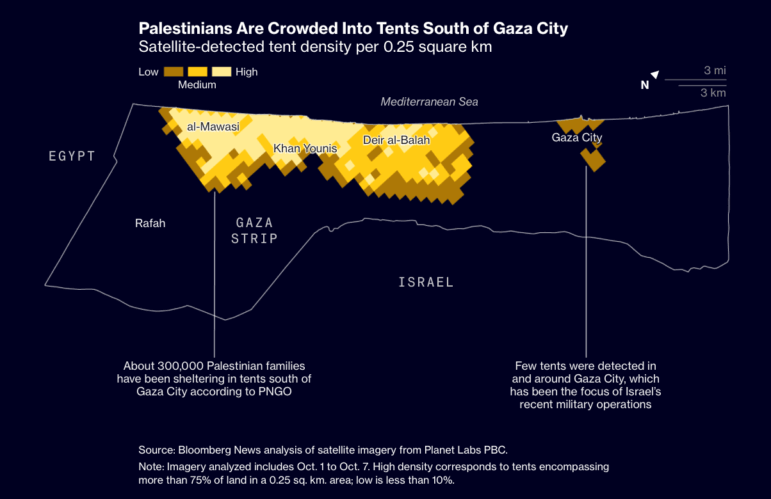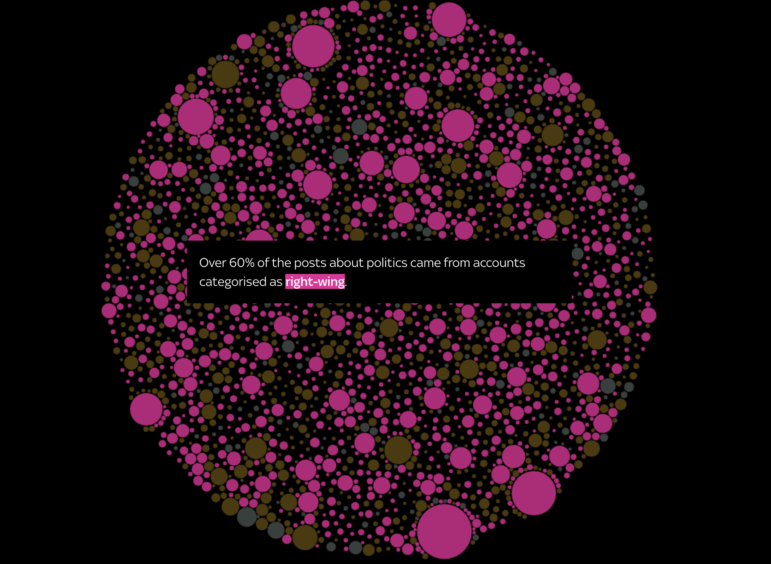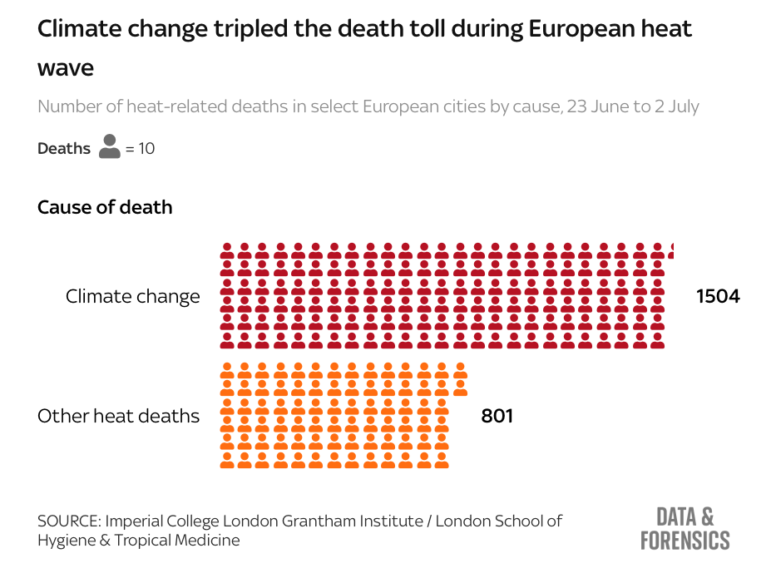

Image: Screenshot, Sky News
Europe’s Deadly Heatwave, Trump’s Massive Budget Bill, and Middle East Ceasefires That Don’t Last
US President Donald Trump marked the Fourth of July by signing into law a federal budget bill with far-reaching implications for redistributing wealth in the country, since its final version was packed with tax breaks for America’s wealthiest households and deep cuts to Medicaid programs that serve the poor and working class. The Washington Post develops a personalized calculator, allowing readers to explore precisely how the bill will impact them financially. In this edition of our Top 10 in Data Journalism, which considers stories between June 21 to July 9, we also feature Der Spiegel’s interactive on the world’s most risky maritime shipping routes, The Bureau of Investigative Journalism’s latest deep dive into cancer drugs exported to over 100 countries, and a project from Nikkei’s Vdata team that uses OSINT techniques to uncover “pig butchering” — or online scamming centers — set up in Myanmar.
Winners and Losers from Trump’s Big Budget Bill
After hours of debate, the US House of Representatives passed the cornerstone of President Trump’s second-term agenda, a massive spending bill that is projected to add $3.3 trillion to the national debt over the next decade. The legislation cuts Medicaid and food stamp provisions, adds more to the defense budget, and promises hefty tax cuts to the country’s highest earners. The Washington Post unpacked how the legislation will affect different Americans in an interactive tool using a model developed by the University of Pennsylvania, which takes into account household income, benefits, marital status, and factors such as dependents. Readers can input their own data to understand how their finances could go up or down. For example, the modeling showed a single person earning $80,000 in California will be have $2,000 more each year as a result of the changes, while a single mother of two earning $20,000 and receiving Medicaid and other benefits is projected to be $870 worse off.
Myanmar’s Scam Centers / Border Prisons
Nikkei’s visual investigation into Myanmar’s scam centers dug into the clandestine compounds where trafficked workers are forced into “pig butchering,” a type of online investment scam that entails building online relationships with victims and tricking them into fake investment schemes. Nikkei’s Vdata team combined satellite imagery, nighttime light analysis, public records, expert interviews, and NGO reports to identify and verify suspected scam centers, which are often built along the borders with Thailand where many workers are from. The team used mobile device location information, and accessed leaked documents linking militant groups to these fraud operations. They pinpointed the precise locations of these hubs on the borders of Myanmar, reveal how they’ve grown into “prisons” ensnaring those who think they’ve been offered a job but instead find themselves trapped in money-driven exploitation schemes.
Deadly Heatwaves Impact Europe
The latest heatwave in England likely killed 263 Londoners, according to this report from Sky News which assessed how climate change is impacting heat waves across the country. Although the temperatures — which reached highs of 35˚C (95˚F) — are not as high as those reached in other parts of Europe at the same time, the authors warn that “British classrooms, homes, and hospitals are ill-prepared to deal with increasing temperatures.” The Sky report used data from the Imperial College London Grantham Institute / London School of Hygiene and Tropical Medicine, and also dug into European stats on deaths related to climate change and heat, as well as the age groups most at risk of death from heat.
Tankers in the Middle East Line of Fire
Amid rising tensions in the Middle East, the Israeli and US attacks on Iranian military and nuclear facilities shook markets. At the center of the turmoil: the Strait of Hormuz, the 50-km (31-mile) wide shipping corridor on Iran’s southern border, through which some 20 million barrels of oil a day are transported — and which Iran has threatened to close. Using maritime traffic data and UN trade and development data, Der Spiegel’s scrollytelling interactive mapped the major maritime bottlenecks around the world including the Suez Canal and the Bab el-Mandeb Strait – which, in 2024, were at the epicenter of Houthi rebel attacks.
Suspect Cancer Drugs Shipped Around the World
While roughly one in six deaths worldwide is due to cancer, new drugs offer a lifeline to many patients whose condition would deteriorate without them. But according to a landmark study published in the Lancet — which analyzed 189 drug samples from Cameroon, Ethiopia, Kenya, and Malawi — up to a fifth failed quality tests. Many of the samples were generic drugs – those made more cheaply once the original manufacturer’s rights have expired, with 16 of the total 17 manufacturers being India-based. Using primary data from the research publication, an investigation from the Bureau of Investigative Journalism (TBIJ) in partnership with The Hindu found that some of the drugs used to treat leukemia, ovarian, and breast cancer contained very little of the necessary key ingredients, while other drugs contained too much. In some cases, pills in the same blister pack contained different amounts of active ingredients. TBIJ analyzed the Lancet’s findings, finding that the worst performing drug identified in the study had been shipped to six countries with the largest importer being Ethiopia.
Clearing Landmines in Ukraine
Bellingcat collaborated with AFP to investigate the immense challenge of landmine contamination across Ukraine. Drawing on the National Mine Action Centre’s publicly available records, which is compiled from over 80 demining teams, the piece featured interactive maps that overlay confirmed, suspected, and cleared zones with farmland boundaries. Using Mapbox, Bellingcat’s maps allow readers to explore areas in eastern Ukraine where agriculture is the bread and butter of the region, but where stepping on unexploded ordnance remains a very real threat. Combined with on-the-ground interviews, Bellingcat contextualizes the human and economic toil of living and working in such areas.
Overcrowding in Italy’s Prisons
Italy is known to have some of the highest prison overcrowding rates in Europe, with an incarcerated population average of nearly 135% of capacity, according to Associazione Antigone, an Italian NGO monitoring the country’s criminal justice system. Using data from Antigone’s latest report, Infodata mapped the extent of the crisis in the country, revealing that in six regions prisons are operating at close to 200% capacity, meaning they house double the number of inmates the facility was designed for. The interactive story offered readers a chance to explore individual penitentiaries, to see the number of inmates held in each location, and the overcrowding rate. The charts were created by data journalist David Ruffini, whose data analysis goes into more detail on his own live dashboard, with extra visualizations such as the number of inmates per officer and deaths in prisons.
Toxic Housing Legacy of LA Wildfires
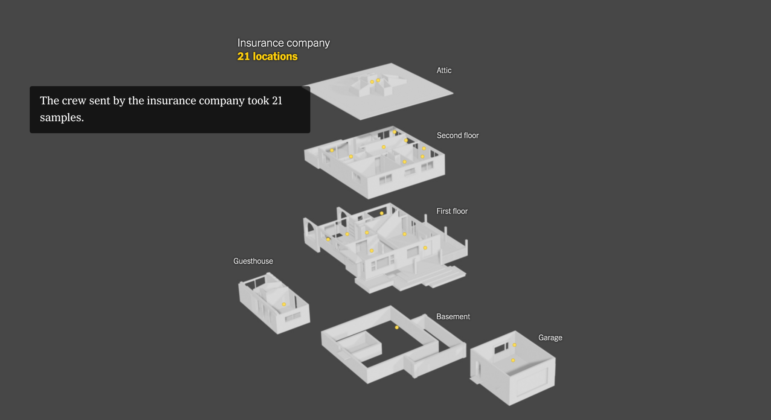
Image: Screenshot, The New York Times
Six months have passed since devastating wildfires destroyed thousands of homes in LA. However, many of the properties that survived unscathed have been impacted by invisible toxins released by the smoke that seeped through vents and airways into the homes, according to this report in The New York Times. Reporters examined dozens of toxicology studies and interviewed homeowners through a survey to unveil the scale of the problem and review the role of insurance companies. Among the issues, some residents found evidence of benzene, emitted by rubber when it burns, and cyanide, which can be released by plasma TVs. Nearly all of the 122 reports conducted by 64 different insurance companies that the team reviewed showed some level of contamination. Using 3D modeling, the Times presented the differences between the testing done by insurance companies compared to investigators hired by families, where the latter revealed alarming levels of carcinogens.
Russia’s Alternative, Pro-Kremlin Encyclopedia
In 2022 Ruwiki — an imitation of the Russian-language version of Wikipedia — was set up in Russia, copying over 1.9 million articles from the original site. An analysis of these pages found that more than 33,000 articles were altered. According to this piece in the Ukrainian outlet Texty, edits were found to align with pro-Kremlin narratives, such as removing references to Russian war crimes, and altering terminology such as by replacing “war” with “combat operations.” The Texty report is based on a study by Oleksandr Kosovan from the Ukrainian Catholic University and Mykola Trokhymovych from Pompeu Fabra University, which also found that Ruwiki edits mostly occur during weekday office hours, unlike volunteer-driven Wikipedia, suggesting paid work. Texty charted the editing times, pulled out the key links that had been added or deleted, and compared fragments side by side to illustrate the changes.
Failure Rate of Middle East Ceasefires
It has been a complex year for conflict and ceasefires in the Middle East, where numerous cessations in hostilities have been declared, only to falter shortly after. On June 23, after the US joined Israel and began attacking Iran’s nuclear program, President Trump declared a “complete and total” ceasefire between Israel and Iran. The Economist analyzed data from the Ceasefire Project, a research group, covering over 2,200 declared ceasefires between 1989 and 2020. They found data to support the view that the Middle East does not have the best track record for ceasefires, with around half of them failing. Of the 77 entries of ceasefires involving Israel “none have brought lasting peace,” reporters noted.
Hanna Duggal is a data journalist at AJ Labs, the data, visual storytelling, and experiments team of Al Jazeera and a GIJN contributor. She has reported on issues such as policing, surveillance, and protests using data, and reported for GIJN on data journalism in the Middle East, investigating algorithms onTikTok, and on using data to investigate what tribal lands in the US.


